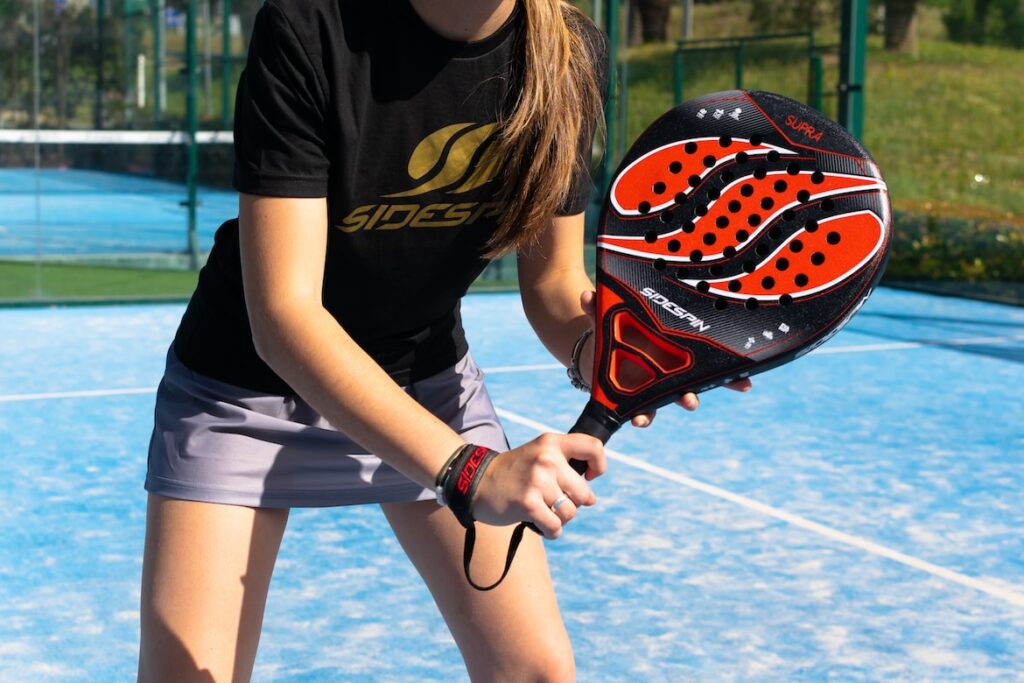The Psychology of Padel Anxiety and How to Combat It
3 min read
The Psychology of Padel Anxiety and How to Combat It
Welcome to a world where thrill meets competition and the sound of a bouncing ball fills the air. Padel, a popular racquet sport that combines elements of tennis and squash, has taken the world by storm. As padel enthusiasts, we all know that stepping on the court is an exhilarating experience. But sometimes, anxiety can creep in and sabotage our game. In this article, we delve into the psychology of padel anxiety and explore effective ways to combat it. So, grab your racquet, tighten your grip, and let’s dive in!
The Mind-Body Connection in Padel
Padel, like any sport, is as much a mental game as it is a physical one. The mind and body are interconnected, and anxiety can wreak havoc on both. When anxiety strikes, it triggers a fight-or-flight response in our bodies. Our heart rate increases, breathing becomes shallow, and we may experience sweaty palms and tense muscles. These physical changes can directly impact our performance on the padel court.
Moreover, anxiety affects our focus and cognitive functions. Our thoughts become scattered, and negative self-talk starts to dominate our inner dialogue. We may doubt our abilities, fear making mistakes, or worry about what others might think. All these mental processes can hinder our decision-making, reaction times, and overall enjoyment of the game.
The Roots of Padel Anxiety
Understanding the root causes of padel anxiety is crucial in finding effective strategies to combat it. Here are some common triggers that could ignite anxiety on the court:
- Performance pressure: The desire to excel and meet the expectations of ourselves and others can put immense pressure on our shoulders, leading to anxiety.
- Past failures: Negative experiences or moments of underperformance in previous games can create a fear of repeating those mistakes, resulting in anxiety.
- Comparisons: Constantly comparing our skills and progress to others can trigger feelings of insecurity and self-doubt, leading to anxiety.
- Social evaluation: Feeling judged by fellow players or spectators can cause anxiety, especially when we strive to prove ourselves or fear embarrassment.
Combatting Padel Anxiety:
Fear not! There are effective strategies to manage and overcome anxiety in padel. Here are some tried-and-tested methods that have helped countless players regain their confidence and love for the game:
1. Mindfulness and Relaxation Techniques
Practicing mindfulness helps us stay present in the moment, reducing anxiety-inducing thoughts. Take a deep breath, focus on the rhythmic sound of your breathing, and let go of any distractions. Combine deep breathing with progressive muscle relaxation, where you systematically tense and relax each muscle group in your body. This combination can help you achieve a state of calmness and control.
2. Positive Visualization
The power of visualization should not be underestimated. Picture yourself dominating the court, executing flawless shots, and feeling confident. Create a mental movie of your success to counteract any negative thoughts or self-doubt. Visualizing your success can help rewire your brain to expect positive outcomes and minimize anxiety.
3. Challenging Negative Thoughts
Anxiety often stems from negative self-talk and irrational thoughts. Challenge those negative thoughts by asking yourself evidence-backed questions. For example, if you fear making mistakes, ask yourself: “Have I made mistakes in the past? How did I handle them?” Rational thinking helps bring perspective and reduces anxiety.
4. Setting Realistic Goals
Be kind to yourself and set realistic goals that reflect your current abilities. Break down larger goals into smaller, achievable steps. Celebrate each milestone along the way, boosting your confidence and reducing anxiety. Remember, progress in padel is a journey, not a sprint.
5. Building a Support System
Surround yourself with a supportive and encouraging group of padel players. Share your anxieties and fears, as you’ll often find others who have experienced similar emotions. Having a support system can help normalize your anxieties and remind you that you’re not alone.
Final Thoughts
Padel anxiety is a common experience, but it doesn’t have to control your game. By understanding the psychology behind it and implementing effective strategies, you can combat anxiety and rediscover the joy of playing padel. Remember, how to deal with anxiety in padel is a personal journey, so experiment with different techniques to find what works best for you. Embrace the challenge, stay focused, and most importantly, enjoy the thrill of every swing, bounce, and victory!






